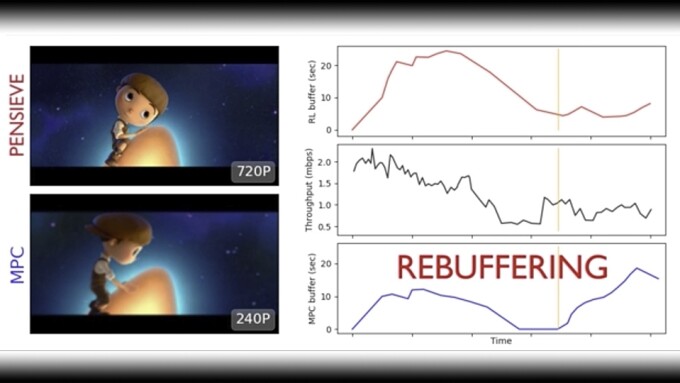LOS ANGELES — Whether it’s a cam, free, pay, tube or VOD site, online adult entertainment today relies on streaming video content and other media in demand by consumers. Unfortunately, frame buffering and other limited-bandwidth-related problems hamper viewing, especially on low-speed mobile and other connections.
This situation may be about to change, however, with a new initiative from MIT’s Computer Science and Artificial Intelligence Lab (CSAIL) and an elite team helmed by professor Mohammad Alizadeh, which is developing an AI system known as “Pensieve,” designed to optimize video stream algorithms on the fly to deliver the best playback possible.
“Studies show that users abandon video sessions if the quality is too low, leading to major losses in ad revenue for content providers,” says Alizadeh, noting that “Sites constantly have to be looking for new ways to innovate.”
Pensieve reportedly provides a superior solution to current technologies, such as adaptive bitrate (ABR), which balances quality and speed, but also pixelates videos while attempting to maintain a reasonable level of playback quality, by analyzing real-time network conditions to select the best quality settings — a method that minimizes drawbacks seen in other approaches.
In recent testing, Pensieve’s neural network has shown its ability to reduce rebuffering by up to 30 percent while boosting quality up to 25 percent — with significant room for further improvement and applicability to bandwidth-intensive virtual reality streams.
“The bitrates you need for 4K-quality VR can easily top hundreds of megabits per second, which today’s networks simply can’t support,” Alizadeh adds. “We’re excited to see what systems like Pensieve can do for things like VR. This is really just the first step in seeing what we can do.”
Pensieve is set for an Open Source release, making it available to users at all ends of the spectrum.
For more information, click here.








